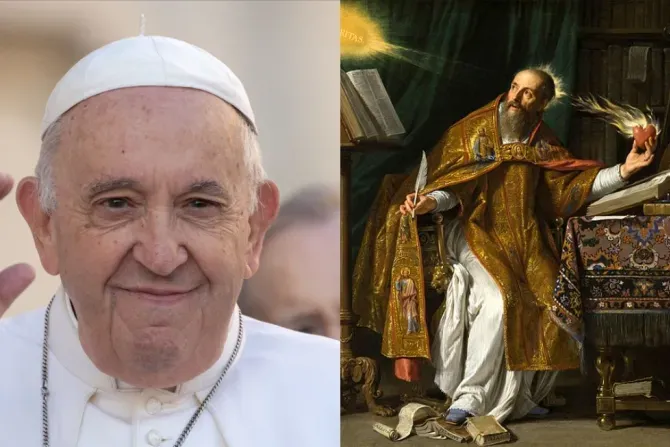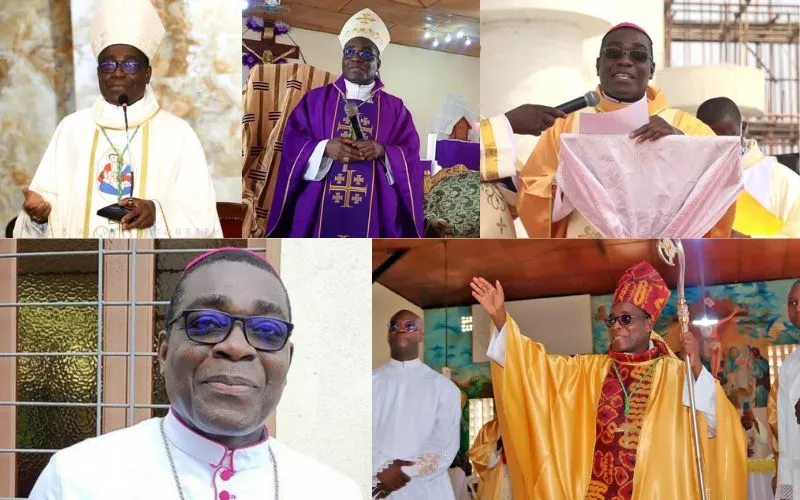“St. Augustine, a great seeker of the truth, had understood this just by rereading his life, noting in it the silent and discreet, but incisive, steps of the presence of the Lord.”
The pope highlighted a passage from book 10 of Augustine’s Confessions, where the doctor of the church wrote:
“Late have I loved you, O Beauty ever ancient, ever new, late have I loved you. You were within me, but I was outside, and it was there that I searched for you. In my unloveliness, I plunged into the lovely things which you created. You were with me, but I was not with you.”
St. Augustine’s words are an invitation to “cultivate an interior life in order to find what you are looking for,” the pope observed.
 Pope Francis prays at the general audience, Oct. 19, 2022. Daniel Ibáñez / CNA
Pope Francis prays at the general audience, Oct. 19, 2022. Daniel Ibáñez / CNA
Pope Francis said that reflecting on one’s own story also means recognizing the presence of “toxic elements” in one’s past and how to avoid repeating mistakes.
“Discernment is the narrative reading of the good times and the dark times, of the consolations and desolations that we experience in the course of our life. In discernment, it is the heart that speaks to us about God, and we must learn to understand its language,” he said.
The pope recommended studying the lives of the saints to help recognize how God acts in a person’s life.
“Because God’s style is discreet,” he said. “God likes to be hidden, discrete. He does not impose; it is like the air we breathe — we do not see it but it allows us to live, and we realize this only when it is missing.”
Pilgrims from Haiti, Indonesia, Croatia, Poland, Ireland, Denmark, Norway, Belgium, Canada, the United States, Switzerland, and the Democratic Republic of Congo were present in St. Peter’s Square for the pope’s sixth general audience dedicated to the theme of personal discernment.
 Joyful pilgrims at the general audience at the Vatican's St. Peter's Square, Oct. 19, 2022. Daniel Ibáñez / CNA
Joyful pilgrims at the general audience at the Vatican's St. Peter's Square, Oct. 19, 2022. Daniel Ibáñez / CNA



 Pope Francis prays at the general audience, Oct. 19, 2022. Daniel Ibáñez / CNA
Pope Francis prays at the general audience, Oct. 19, 2022. Daniel Ibáñez / CNA
 General audience at the Vatican's St. Peter's Square, Oct. 19, 2022. Daniel Ibáñez / CNA
General audience at the Vatican's St. Peter's Square, Oct. 19, 2022. Daniel Ibáñez / CNA


